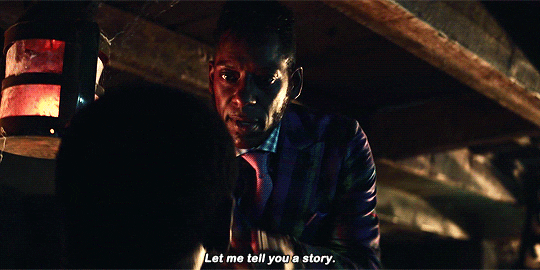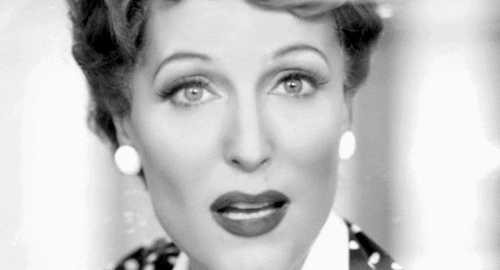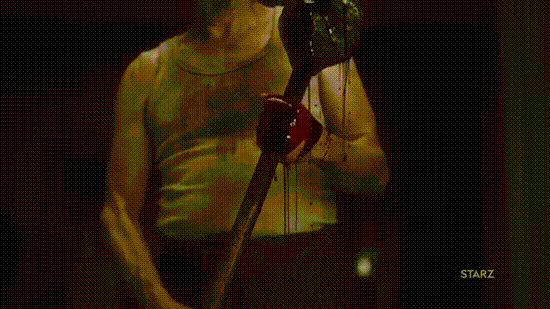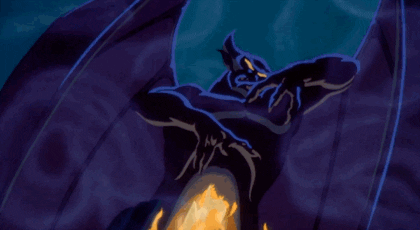Well that was great follow up to an excellent debut. Of course the one of the first big things I noticed off the bat was the pacing. It’s the second episode and a big chunk of the book has already been covered. Since the series has already been renewed for a second season, I hope they’ll be slowing down before they run out of material. The only reason I can think that their pacing might change in the coming episodes is that they still have some world building to do, and with all the main particulars now set in place—or most of them anyway—it’s time they started putting in their own ideas to fruition.
That aside, what made this episode so amazing was that they began taking creative control of the storyline, although at the moment, more minimally. Unlike other adaptations that completely change characters personalities, the purpose of events, or even omit useless plots for significant ones. The show does take some creative liberty that I’ve already questioned but it’s nowhere near the line that will get avid book fans frustrated. Instead it’s like a well versed argument. Whether the point they’re trying to get across does not support your opinion, it is still convincing and makes you question your own.
Coming to America
Well that scene was quite intense. At first I thought it would be a rendering of the coming to American scene in chapter 11, so I was thinking: isn’t it kind of early for this? Off topic, it seems like the show is going to keep at this tradition, showing one of these at the start of each episode. Mind you in the novel, there are only three of these scenes, so this is where their own creativity will come into the fold and I fully expect them to draw heavy significance and purpose into each.
Yet, back to it, the scene follows a group of slaves being brought over to the Americas on a Dutch ship in 1697. They do not know what’s happening, why they’re being taken or where they’re going. One of the captive men calls out for Anansi, an African folk god known for being a trickster and story teller, not so different from the Norse god Loki.
What I really loved about this scene though was Orlando Jones’s Anansi. In the novel we see him as more attributed to his God personality; he’s very charismatic, charming, jokes a lot and of course loves telling stories. While the first time we meet Anansi during the pivotal Carousel meeting scene (hopefully I’ll come back to this is the next few episodes), we get an early showing of Anansi in this intro. What we get is a far more different approach to the character, but we do have to take into an account that our first impression of him in the novel is based on his interaction with Shadow. As Anansi’s character in the novel suggests, his personality is all a reaction to whom or what he’s interacting with, as is the case with Shadow in the novel and as is the case with the ship full of slaves. The product in the series is one very angry and spiteful God, but let’s be honest do we expect no less?

Keeping with the trope behavior of Anansi, he starts by telling a story, if not only to enrage the captives aboard the ship by giving them a glimpse to what the future holds for them. Now this is always a touchy subject when put on to mainstream television but Orlando Jones brilliantly uses this to give a dose of reality within fiction with a message that’s incredibly important today. It’ll be hard to top this intro but I cross my fingers that they’ll try. I’m also really excited to see Orlando Jones give us the more novel interpretation of the character when Shadow finally catches up with him.
Leaving Eagle Point
Now this is where I got a little picky with what the series decided to include and omit. Granted they can probably fix this later on in the show, but Shadow’s departure from Eagle Point is a little less of the book than I would have liked.
Honestly though I’m really just being nitpicky because it’s only one scene in particular that got me annoyed, or rather the omission of a scene. In the book, after their final day in Eagle Point Shadow does explain what happened to him with the Technical Boy, minus the lynching in the novels. He also gets a glimpse into Wednesday’s slightly pedophiliac ways…but it’s the scene after that should have been included.
As Shadow is winding down and finally getting to accept what his current state of life is becoming, he tries as he might to just fall asleep. Until that is, he receives an unexpected visitor. The coin he dropped on Laura’s grave that was given to him by Mad Sweeney apparently reanimated her corpse. What’s most painful about this scene in the books is that he gets the truth, even how cold she is in telling it, about her affair with Robbie. In the series Shadow gets his confirmation in a rough and brutal way, as he looks through her phone he gets a surprise dick pic. No one ever wants to find out something like that, in the novel as I said, Laura herself tells the truth. She maybe cold and unemotional about it (she’s dead give her a break), but at least she gives an explanation; a cure for loneliness without actual love and it was to end once Shadow was released. But, to be totally honest this was only one of two issues I had with the episode. Well…two and a half anyway.
Chicago and Other Adventures
Now between Eagle Point and Chicago not a lot happens. Wednesday and Shadow discussed Laura’s revenant and stopped at a diner along the way. While they decided to omit the Laura scene for now we were given the diner scene with a smaller significance. First we get Media far earlier than anticipated. Not due for another couple of chapters, we finally get to see one of the more volatile and unpredictable deities of the New Gods. Yet, instead of appearing to Shadow in a motel room like in the novel, she appears to him, at least still as I Love Lucy, in a local department store while Shadow is picking up supplies.
The scene is nearly identical to the novel version if not for the difference in location and chronology. In this scene we get to see Media attempt to use her powers of persuasion but with the added modernized effect of an entire digital section: T.V’s, mobile phones, tablets, a testament and criticism to our reliance of current technology. She’s seductive in the same way she is in the novel but with the added effect of her temptation not evoking a baser need. Gillian Anderson shined as Media and I can’t wait to see her later role or what more they have to add to her.

Okay this scene made me laugh hysterically. We all remember the sultry scene in Bilquis from the debut episode and the unfortunate man (or not?) who got swallowed by her vagina. Her scene in this episode begins with what awaits the first man as he floats in eternal bliss in some kind of space dimension. I’m sorry but the expression on his face while he floats around naked was hilarious and I laughed for a good ten minutes.
Back to the point though, this scene was another nitpick of this episode. Literally nothing happened this is slightly disappointing after the trailers all teased that these goods would get much more prevalent role. Instead we only got a montage of various sexual encounters and a longer look at some encased body jewelry that we can assumed belonged to Bilquis while she was still in all her glory. I hope they have more planned for her because honestly this really didn’t move her story anywhere. We did however; get our first look at the Djinn, though it’s the same scene from the trailer.
Ahh one of my favorite parts of the book had finally arrived in this episode. By this time in the book Shadow still doesn’t really accept the fact that he’s among Gods or that he’s going to meet more. I mean he did get some heavy hints dropped from Mad Sweeney but they were both pissed drunk so how reliable can that information actually have been. But before anything I’ll start with the setting. The apartment jumped right off the page and into the series in this representation. The cigarette stained walls; the air of poverty with a very Slavic feel was just how Gaimen describes Czernobog and the three Zoyra’s apartment.
The Zoyra’s (Slavic, Zorja) were also well cast, well the two we saw anyway. Actually interestingly enough, in the original mythology there are actually only two Zorya’s: Vechernyaya (Slavic, Vechernjaja) who is known as the evening star and who closes her father Dazbog’s palace at dusk upon his return and Zoyra Utrennyaya (Slavic, Utrennjaja) who opens the gates at dawn. Gaiman had added a third sister under the name of Zoyra Polunochnaya and gives her the title of the midnight star and is often seen stargazing. For the purpose of adding an extra, he also kind of of switches their roles around, which is forgivable considering this is a work of fiction; you have to take all adaptations even from the original myths to the novel with a grain of salt.
Their series counterparts are a little different as well, for example they gave Utrennyaya’s more head of the family role to Vechernyaya and giving Utrennyaya a quieter role. The fortune telling scene was a little disappointing as well, since they never got into why which sister is a better fortune teller. Of course in the book, the sister who tells naught but lies is the best while the one who tells only truth is the worst.

But the character who really stole the scene, and should have anyway, was Peter Stormare’s, Czernobog. Also of Slavic origin, the ‘black God’ is often represented with a malevolent nature because of the attributed color, while his brother Bielbog is the opposite and known for being a white God or a God of light. Stormare actually gives us the dialogue in which he does explain the general misconception of his thought color. Since he came from an area with no really dark skinned people, his shade was considered dark, which cause his brother to be thought of as good. The show brilliantly does it in reference to Shadow himself being black; his skin color is never actually really mentioned in the novel. The persona Stormare gives us of the Slavic God is so tuned to his novel counterpart it’s hard to imagine anyone else ever being cast in this role. The scene is heavy in its dialogue from the duality speech of Czernobog and his brother to the informative and interesting tangent about the art of killing a cow with a hammer.
The most important scene of this part of the episode of course is the checkers game. Now before I get into a rant of disappointment I have to remind you and myself that it’s not over. The rest of the match will obviously, hopefully, be in the next episode. But what actually made me kind of annoyed was the deal. In the novel, Shadow makes the deal. Seeing that Wednesday really needs Czernobog to join his cause, he makes the decision to up the stakes of the game. If he wins, Czernobog joins, if not he takes a blow to the head from his hammer.
In the series it’s Czernobog who makes the deal which destroys Shadows resourcefulness and instead turns it into Czernobog slightly already believing in the cause. Of course, the outcome is the same but in the novel: Shadow plays a double or nothing deal, same reward on his end. With clever rhetoric though, he mentions that he only promised Czernobog one hit to the head; one that may not even kill him, so in return he offers him a second.
I really hope this scene is the next episode.

Final Thoughts
The second episode of the series hit some rough edges as they began to show a lot more differences as adaptation, though it still ended up being a great episode. For the most part the changes were subtle, but ultimately made sense to the story as a whole. There were one or two things that either didn’t progress the story to something promised by the makers or either an event out of time or completely omitted. But as so many have mentioned, it is an adaptation of a limited page book that being made into at least 2 season, we have to consider that, as well as how the author of the novel also took some creative control and altered the myths surrounding the many Gods and Goddesses.

